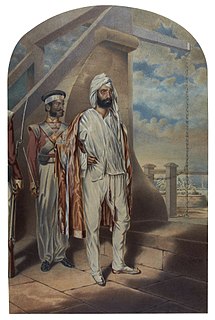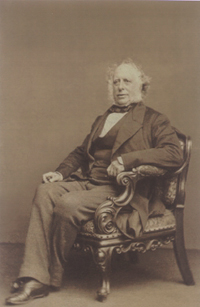This page is based on this
Wikipedia article Text is available under the
CC BY-SA 4.0 license; additional terms may apply.
Images, videos and audio are available under their respective licenses.
The civil service is independent of government and is also composed mainly of career bureaucrats hired on professional merit rather than appointed or elected, whose institutional tenure typically survives transitions of political leadership. A civil servant or public servant is a person employed in the public sector on behalf of a government department or agency. A civil servant or public servant's first priority is to represent the interests of citizens. The extent of civil servants of a state as part of the "civil service" varies from country to country. In the United Kingdom, for instance, only Crown employees are referred to as civil servants whereas county or city employees are not.
Charles Wilson or Charlie Wilson may refer to:
James Wilson (1742–1798) was a signatory of the United States Declaration of Independence.

The Second Anglo-Sikh War was a military conflict between the Sikh Empire and the British East India Company that took place in 1848 and 1849. It resulted in the fall of the Sikh Empire, and the annexation of the Punjab and what subsequently became the North-West Frontier Province, by the East India Company.
Edward Thomas may refer to:
Peter or Pete Moore may refer to:
A director general or director-general or general director is a senior executive officer, often the chief executive officer, within a governmental, statutory, NGO, third sector or not-for-profit institution. It is commonly used in many countries worldwide, but with various meanings.
The Siege of Multan was a prolonged contest between the city and state of Multan and the British East India Company. The siege lasted between 19 April 1848, when a rebellion in the city against a ruler imposed by the East India Company precipitated the Second Anglo-Sikh War, and 22 January 1849, when the last defenders surrendered.

Mulraj Chopra was the Diwan of Multan and leader of a Sikh rebellion against the British which led to the Second Anglo-Sikh War.
Events from the year 1780 in Ireland.

Sir Frederick Currie, 1st Baronet was a British diplomat, who had a distinguished career in the British East India Company and the Indian Civil Service. His posts included Foreign Secretary to the Government of India, Member of the Supreme Council of India, Resident at Lahore and Chairman of the East India Company.
Karanapaddhati is an astronomical treatise in Sanskrit attributed to Puthumana Somayaji, an astronomer-mathematician of the Kerala school of astronomy and mathematics. The period of composition of the work is uncertain. C.M. Whish, a civil servant of the East India Company, brought this work to the attention of European scholars for the first time in a paper published in 1834. The book is divided into ten chapters and is in the form of verses in Sanskrit. The sixth chapter contains series expansions for the value of the mathematical constant π, and expansions for the trigonometric sine, cosine and inverse tangent functions.
Sankara Varman (1774–1839) was an astronomer-mathematician belonging to the Kerala school of astronomy and mathematics. He is best known as the author of Sadratnamala, a treatise on astronomy and mathematics, composed in 1819. Sankara Varman is considered as the last notable figure in the long line of illustrious astronomers and mathematicians in the Kerala school of astronomy and mathematics beginning with Madhava of Sangamagrama. Sadratnamala was composed in the traditional style followed by members of the Kerala school at a time when India had been introduced to the western style of mathematics and of writing books in mathematics. One of Varman's contribution to mathematics was his computation of the value of the mathematical constant π correct to 17 decimal places.

Peter Stuart Whish-Wilson is an Australian politician. He has been an Australian Greens member of the Australian Senate since 21 June 2012. On 20 June 2012 he was appointed to the Senate to fill a casual vacancy caused by the resignation of former party leader Bob Brown on 15 June 2012.
The surname "Lyall" is found early in Scotland and was derived from the Old Norse given name "Liulfr" meaning Wolf. After the Viking settlement in Scotland name sounds would have changed. For example, "Liulfr" is pronounced 'lee-oolv-ur', but after time probably softened in pronunciation to 'lee-ooler' and then 'loo-il' and finally 'lyall' after the Old Norse "R" was dropped off the end. The Lyall Clan is a Sept of Clan Sinclair a Highland Scottish clan of Norman origin a people descended from Norse Vikings who held lands in the north of Scotland, the Orkney Islands, and the Lothians.
Lyall is a surname. Notable people with the surname include:
John Carnac Morris (1798–1858) was an English civil servant of the East India Company, and scholar of Telugu.
Padmakar Ramachandra Dubhashi is an Indian civil servant, administrator, author, social scientist and academician, known for his administrative and academic abilities. He was a pioneer of Cooperative movement and was instrumental in housing the Goa University in a new campus, a feat he accomplished during his tenure as the Vice-Chancellor of the University. The Government of India honoured him, in 2010, with Padma Bhushan, the third highest civilian award, for his services to the nation.




